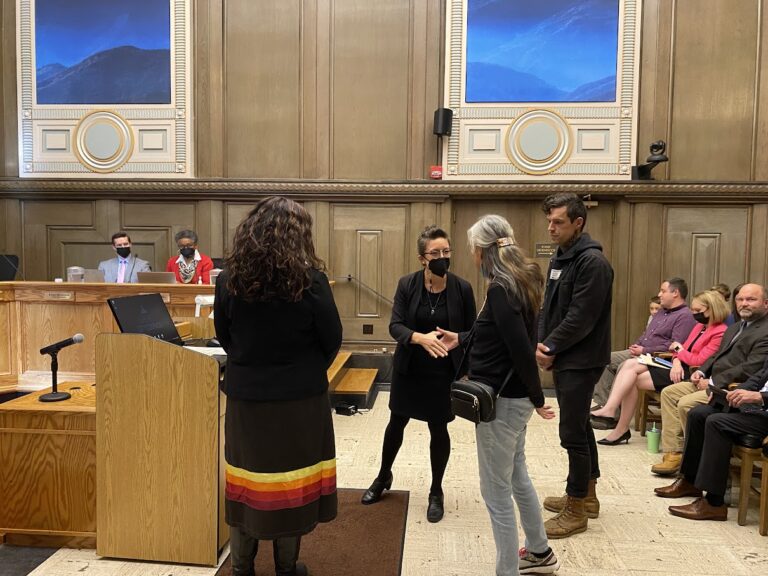City Council member Kim Roney reads a proclamation during Tuesday, October 11 Council meeting, declaring council support for the efforts of the Tribal Council of the Eastern Band of Cherokee Indians to restore the name Kuwohi to the mountain presently known as Clingmans Dome.
The proclamation stated the City of ᏙᎩᏯᏍᏗ (Asheville) is committed to creating an inclusive community that celebrates diversity and ensures all residents have equitable opportunities to lead healthy, peaceful, safe and sustainable lives.
On October 12, 2016, the Asheville City Council adopted the 2nd Monday of October as Indigenous People’s Day, and also acknowledged our nation’s history of colonial settlerism that has inflicted discrimination and genocide upon indigenous people and recognize that truth must come before reconciliation.
The area currently known as Asheville in Buncombe County, North Carolina rests on land that was first inhabited by the Cherokee and their ancestors; and which covered more than 100,000 square miles of what today is western North Carolina, eastern Tennessee, northern Georgia, and upstate South Carolina; and white settlers began arriving in what would become Buncombe County in the 1760s and laid false claim to this Cherokee land.
The Eastern Band of the Cherokee, a federally recognized Indian tribe with sovereign powers of self‐government, endure to this day, now living in the Qualla Boundary just to our west having survived genocide, stolen land, forced relocation, and family separations.
On the July 14, 2022, the Tribal Council of the Eastern Band of Cherokee Indians unanimously supported a resolution to restore the name ᎫᏬᎯ (Kuwohi) to the mountain presently known as “Clingmans Dome;”
